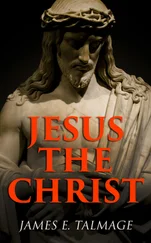William felt a leap of pleasure at hearing the name. Henry Maudsley was a respected figure in the field of psychological research, someone allied with the materialist school, which believed that abnormal mental processes could be entirely explained by physical causes. Although William faulted the materialists for refusing to consider nonphysical aspects of mental illness, he valued their work for supporting the connection of mind and body, albeit from one direction only.
He therefore shook Maudsley’s hand with enthusiasm, and in introducing himself, expected that his host would respond to his name with equal pleasure. Maudsley, however, merely nodded and set about explaining his presence at the asylum with a pontifical air. “I am here at Broadmoor on an interim basis, following the retirement of the venerable Dr. William Orange. I find that the institution provides ample subjects for my research.” Abruptly turning to William with an accusatory air, he then said, “You hold to a nonmaterial view of mental debility, don’t you, Professor James? I reject that. My latest research, in keeping with Darwinian principles, shows that lunacy is the result of neurological deficiencies—debilities of mental process that cause images and ideas to take distorted and unnatural forms.”
William bristled. He had hoped to find common ground with Maudsley, despite their differences in approach, but the man’s confrontational manner put him on the defensive. He began to argue, somewhat shrilly, that social, cultural, and indeed spiritual factors certainly did contribute to mental illness.
Abberline intervened. “We are here to meet with an inmate by the name of John Pizer,” the inspector said curtly. “As you may know, he was an early suspect in the Whitechapel murders and would have been hunted down and torn to pieces had he remained in the community. Fortunately, he also happened to be mad. It’s a dire state of affairs when we have to send people to a lunatic asylum for safekeeping.”
Maudsley seemed to become more reasonable in the face of this professional exposition. He pulled out a file from the cabinet near his desk and read aloud, “‘John Pizer. Age: thirty-two years. Residence: East End, London; specific address unknown. Trade: Boot maker. Diagnosis: Mania alternating with melancholia. Treatment: Spinning, blistering, immersion in cold water.’” Maudsley glanced up. “That was the treatment prescribed by Dr. Orange; I have discontinued it.” He closed the file. “It’s a fairly routine case of mental imbalance. The patient has periods of lucidity but is given to unpredictable ravings and disorientation. No doubt there are lesions on the brain. But you’re welcome to speak to him if you think it will do you any good.”
He took a set of keys from his desk drawer and led the men from his office. As he approached the doors that led to the patient area, he paused. “I should like to take a detour before we proceed and have you visit someone you might find of interest. He’s mad enough, but he hardly fits the conventional mold of the madman.” Maudsley addressed William now with more consideration than he had shown formerly. They had reached the end of the corridor, and he motioned to a door. “We don’t bother with the locks in this case. This man poses no danger. He killed someone years ago, but here, as you’ll see, he’s found a modicum of peace.”
He knocked on the door and then opened onto a spectacular scene. The room was far more spacious than expected; in fact, it was two cells, the wall of the adjoining one having been removed to accommodate the prisoner’s needs.
In a small corner area was a bed and the accompanying hygienic necessaries, but by far the larger space was occupied with an oak desk, positioned in front of a window and affording a lovely view of the moorland. On either side of the window were bookcases, reaching to the ceiling and crammed with books, and above the desk was a cabinet made up of small cubbyholes. William could see that each cubbyhole was marked with a letter of the alphabet and was crammed full of papers. Books of various sorts were also piled on the floor, some open, some with multiple markers inserted in their leaves. The effect was of a vast and complicated scholarly enterprise. It reminded William of his study at home, though his own space, he acknowledged to himself, was not as well organized.
It took a moment, amid the great volume of books and papers, for the figure of a very thin man in his fifties with white, flyaway hair to come into view. He was hunched over the desk with a lamp at his elbow that infused the room with a strong odor of camphor. He had his spectacles low on his nose and was reading intently from a large book, which William saw had to do with the etymology of birds.
“William Chester Minor,” said Maudsley, “our resident lexicographer. William James, professor of philosophy and psychology at Harvard College.”
Minor looked up. “Professor James!” he exclaimed. “ Psychic , psychologist , psychosis , psychological , psychosomatic —all words gleaned from your papers and relayed to my correspondent, Sir James Murray, editor of the Oxford English Dictionary , currently in the process of being compiled, and for which I am an indispensable resource. I also understand that I am afflicted by a debilitating psychological disorder, for which work on the dictionary, intense and unrelenting, has been a soothing and reclamatory activity.”
“You have medical training?” William asked. He sensed that the man understood his own affliction in a way that a mere layman would not.
Minor, whose hands had been rifling nervously through the pages of the book before him, paused a moment and then spoke in a surprisingly measured, thoughtful manner. “Yes, I am a trained physician. The training itself posed no problem. Indeed, I was a superlative student. My difficulty came with the practice. There, you see, there were problems of another dimension. In the end, I found them insuperable.”
William gazed at Minor with fascination. “The human dimension,” he murmured.
Minor’s hand shot to his forehead, as though he had suffered a sudden pain there. “It requires a kind of…thought. I must confine myself to the rote and the methodical, that which imposes order on that great furnace that produces our souls, be they our souls or merely the engines of our being. I cannot rest if I think on it. I cannot think on it, or I go mad.” His gaze remained fastened on William as he spoke, as if to say, You understand .
Indeed, William did. His own work on mental process, a huge enterprise on which he had been laboring for years, was a compendium of sorts, a way of organizing the chaos of mental life for the underlying end of preserving his own sanity. He knew to be true what Minor said, to think too much outside established forms and habits was to see the chaotic—and demonic—potential of the mind and be catapulted into the abyss.
William felt himself recoil at the kinship he felt with Minor, who, reciprocally, seemed disturbed by the human connection he had fleetingly established with his visitor. The calmness with which he had spoken began to give way to physical signs of distress. His shoulders twitched, and he shifted uncomfortably in his chair until, finally, shaking himself, as if throwing off a confining garment, he ducked his head and returned to his books.
“He is helping compile a dictionary?” William whispered to Maudsley as they backed away from the desk.
“It appears so,” said their host. “There is regular correspondence between Minor and this Dr. Murray. I wonder if Murray knows he is writing to an inmate in a lunatic asylum. His letters are simply addressed to Broadmoor, Crowthorne.”
Читать дальше












